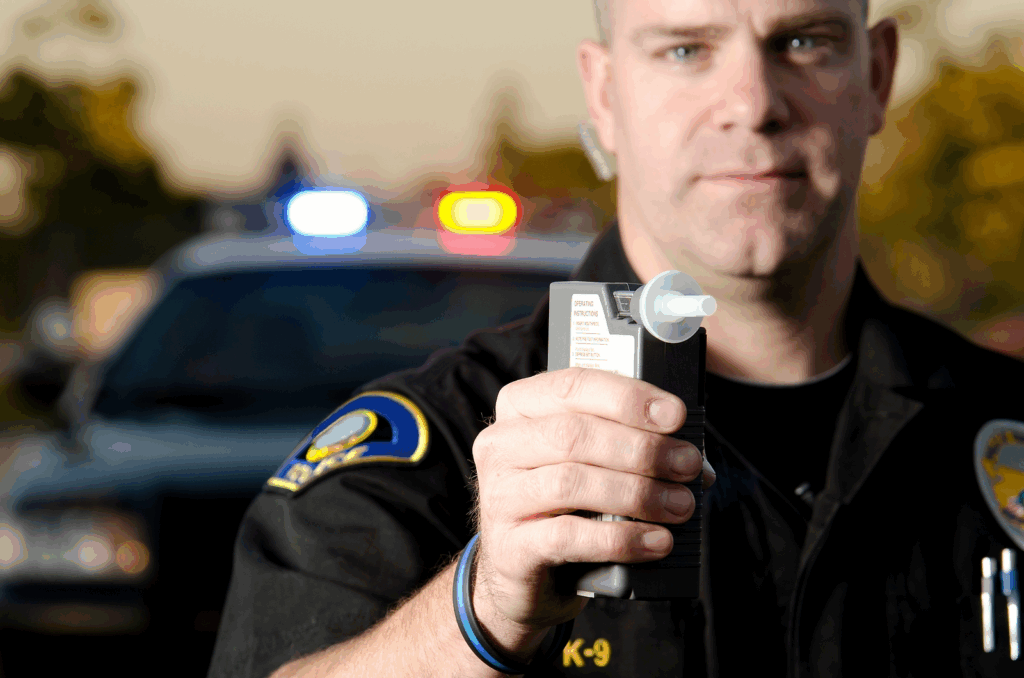Understanding How Implied Consent Laws in Nevada WorkSeptember 22, 2025
If you are arrested for driving under the influence in Nevada, you will be asked to perform a chemical test when you arrive at the jail or police station. The results of that test may be used against you in court as evidence that you were under the influence of drugs or alcohol while driving. While you can refuse to submit to a test, Nevada’s implied consent law imposes penalties of which you should be aware. To help ensure that you understand the legal implications of refusing a chemical test during a DUI arrest, The Las Vegas Lawyers explain Nevada’s implied consent law.

Nevada Implied Consent Law
In recent decades, most states have enacted an implied consent law as part of a nationwide effort to crack down on drunk driving. Governed by NRS 484C.160, Nevada’s implied consent law reads as follows:
“Except as otherwise provided in subsections 4 and 5, any person who drives or is in actual physical control of a vehicle on a highway or on premises to which the public has access shall be deemed to have given his or her consent to an evidentiary test of his or her blood, urine, breath or other bodily substance to determine the concentration of alcohol in his or her blood or breath or to determine whether a controlled substance, chemical, poison, organic solvent or another prohibited substance is present, if such a test is administered at the request of a police officer having reasonable grounds to believe that the person to be tested was:
- Driving or in actual physical control of a vehicle while under the influence of intoxicating liquor or a controlled substance or with a prohibited substance in his or her blood or urine; or
- Engaging in any other conduct prohibited by NRS 484C.110, 484C.120, 484C.130 or 484C.430.”
What the law means, in simple terms, is that if you drive a vehicle on a public roadway in Nevada, you have given your consent to submit to a test (blood, urine, or breath) to check for the presence of alcohol or other substances in your system.
Why Might the Police Make Me Take a Blood Test?
The implied consent law covers blood, urine, and breath testing if a police officer has reasonable grounds to believe you are under the influence of alcohol or drugs. While urine tests were once widely used to check for the presence of alcohol and drugs, most law enforcement agencies now use breath tests because they are more reliable and easier to administer. A blood test is the most invasive type of test used to test for alcohol in your system, which is why they are usually only used when a breath test is not an option, such as when a suspect is unconscious. Blood tests may also be used to test for the presence of a controlled substance in your system, because a breath test can only detect alcohol. Finally, a warrant may be issued to conduct a blood test if you refuse to perform a breath test.
What Happens If I Refuse to Take a Breath Test?
If you refuse to perform a breath test, you could be ordered to submit to a blood test if a warrant for a blood draw is requested and approved. Regardless of whether a blood test is administered, there are consequences associated with refusing a breath test. Your driving privileges will be administratively suspended for one year for refusing a breath test. This suspension applies even if a blood test shows no drugs or alcohol in your system. It also applies without regard to what happens in the underlying DUI case. For example, if your DUI case goes to trial, and you are acquitted, the one-year license suspension remains in effect. If you are convicted of the underlying DUI charge, the one-year suspension for refusing a breath test can be in addition to any suspension ordered by the judge as part of your sentence.
Can I Contest a DUI Refusal Suspension?
There are an infinite number of scenarios that might cause a suspect to be unable to perform a breath test that does not involve an intentional refusal. Medical conditions, stress or anxiety, and malfunctioning machines are just a few conditions that could lead to a suspect’s inability to perform the test. If you have been accused of a violation of the implied consent law, but do not believe that you violated the law, you can contest the violation and the correlating license suspension. You only have seven days, however, from the date of your arrest to request a hearing with the Department of Motor Vehicles. Finally, it is important to know that if you refuse a breath test, the prosecution can bring up your refusal at trial as evidence of your guilt.
What Should I Do If I Violated the Implied Consent Law in Las Vegas?
If you have been charged with a violation of the Nevada implied consent law, consult with the experienced Las Vegas DUI defense attorneys at The Vegas Lawyers as soon as possible to discuss your next steps. Call us at 702-707-7000 or contact us online.

